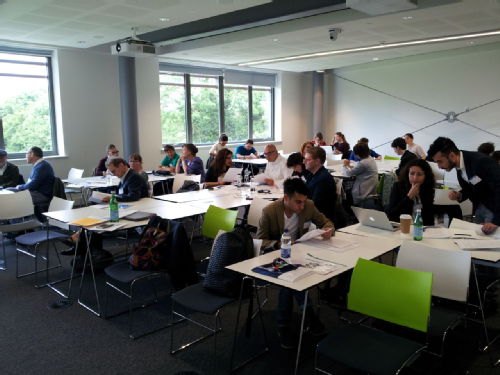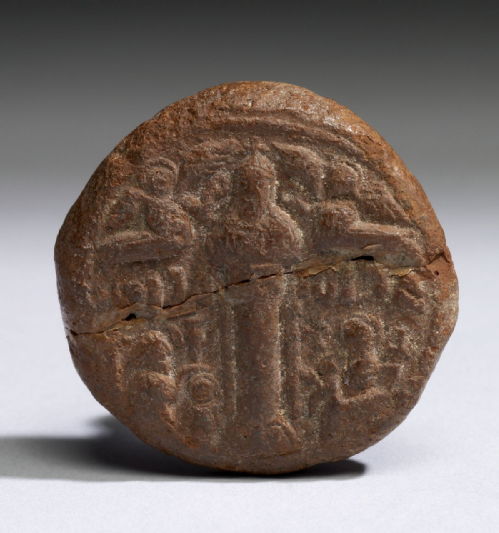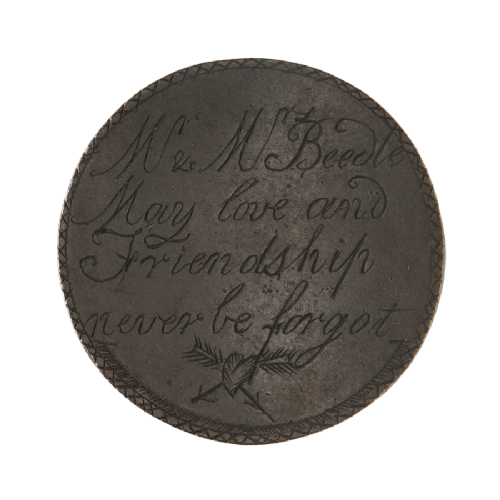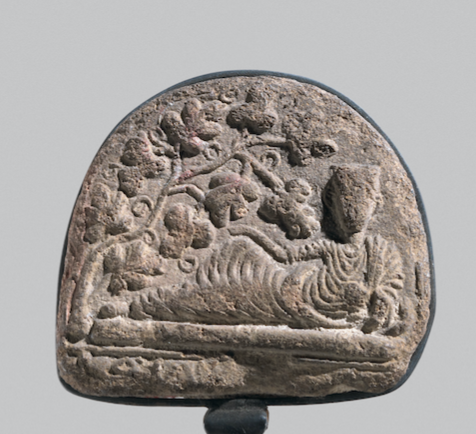All 1 entries tagged Money
View all 38 entries tagged Money on Warwick Blogs | View entries tagged Money at Technorati | There are no images tagged Money on this blog
June 16, 2017
Token Characteristics: Some Preliminary Thoughts
 |
|
| Talking Tokens: The Warwick Conference |
Earlier this month, the Token Communities project played host to scholars from around the world for the conference Tokens: Culture, Connections, Communities. As tokens from all periods and places werex presented, I was struck by the way that these objects acted in similar ways across time and space. English defines the word "token" as something representative of something else, "something that serves to indicate a fact, event, object, feeling, etc" (OED). Below are some preliminary thoughts about what might be characteristic of tokens, what they do in human society, and how they interact with hierarchy, human relationships, and human cognition. It is clear that tokens have played a multitude of roles across time, from the prehistoric to the modern day, but here are some characteristics of these objects that emerged from the papers presented at the conference. (And thank you to all who attended!)
Memory Devices
The earliest tokens were used in accounting, to represent, count and redistirbute goods. In this sense they acted as external memory devices to remember our relationships, transactions and obligations with others. But the memory aspect of tokens also manifests itself in other ways. Tokens might also act as souvenirs or mementoes or particular life events, relationships, festivals or other occasions. For example, pilgrim tokens like this pictured here from the shrine of St. Symeon, acted as objects that mementoes that could provoke or embody memories of a pilgrimage to a particular holy site, as Vicky Foskolou's work has shown. Similarly, love or convict tokens acted as an object that embodied the memory of a particular person or relationship. The relative frequency with which tokens from the ancient Mediterranean are found pierced suggests that these objects too may have functioned (in a secondary context) as a memento of a paricular event or person.
 |
 |
| Pilgrim Token from the Shrine of St. Symeon, The Walters Art Museum, Museum purchase with funds provided by the S. & A.P. Fund, 1946 |
Convict love Token. Produced using content from the National Museum of Australia’s Convict love tokens interactive. |
Hierarchy
 |
| Palmyrene Tessera from the Met. |
By controlling access to particular events, societies or distributions, tokens contribute to the creation and maintenance of particular social hierarchies. The mere existence of tokens suggests a group of those "who have" tokens (and what they represent/provide) and those who "have not". The best known tokens from antiquity are the "banqueting tesserae" of Palmyra in Syria, objects that served as entrance tickets to particular religious banquets in the city. The distirbution of these objects to particular groups in the city would have reinforced particular communities and groups by excluding others, and likely meant that particular cultic spaces within the city became "members only" at particular moments in time. Similarly the use of jetons in early modern France created a dialogue of "inclusion" and "seclusion" that served to reinforce social norms and the hierarchy that existed within the monarchy, as Sabrina Valin has explored.
Money
The relationship between "tokens" and "money" is complex, but there is clearly a relationship at work between the two. Some tokens, whether in antiquity or in the more modern age, acted as a form of money, whether this be small change issued by merchants, or the "company coinage" of groups in the Roman Republic. But in other cases tokens represent money or an amount of money (like the Roman token giving the names of Olympianus and Eucarapus and the sum of 1000 sestertii), mediating transactions in lieu of official money, or in a way that played with official currency. Tokens might act in ways similar to money by ensuring the distribution of goods and efficient account keeping without ever taking on the role of 'money' itself. In many ways tokens are "like money, but different", and perhaps this was intentionally the case in antiquity to ensure a clear delineation between "official money" and other objects that acted in monetary ways. One wonders whether tokens connected to festivals (like those connected to the festival of Isis in Rome) may have acted in this way - 'money but not quite money' used for particular cultic events.
Singularity
One key way in which many tokens appear to have differed from money is that many of them appear to represent a single item (e.g. grain, wine) or are intended for a single use (and thanks to Bill Maurer for this observation!) This "single use" aspect applies to tokens from the prehistoric period (which were thrown away after use) as well as the "tokenisation" used in modern day societies (in credit card transactions for example, where each number released as a token is sequential and individual). By contrast, money circulates and is used again and again, to be exchanged for any number of goods and services.
There is a lot more digesting to do from the conference, and a lot more thinking to be done about what tokens are and what they do in society. Stay tuned! ;-)
This post was written by Clare Rowan as part of the Token Communities in the Ancient Mediterranean project.
 Clare Rowan
Clare Rowan

 Please wait - comments are loading
Please wait - comments are loading

 Loading…
Loading…

